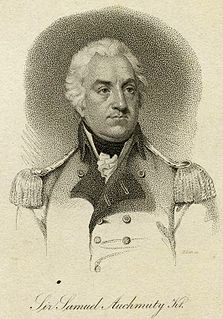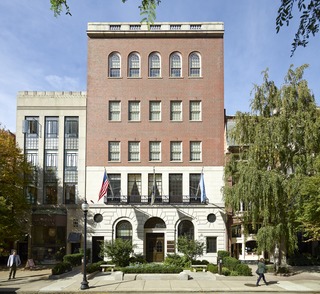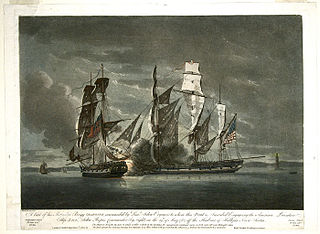David Edward Maas (born February 10, 1940 in Los Angeles, California) [1] is Emeritus Professor of History at Wheaton College (Illinois), United States. He was first appointed to Wheaton's faculty in 1970 and retired in 2010.
David Edward Maas (born February 10, 1940 in Los Angeles, California) [1] is Emeritus Professor of History at Wheaton College (Illinois), United States. He was first appointed to Wheaton's faculty in 1970 and retired in 2010.
He gained a B.A. in History from Wheaton College in 1962, an M.A. in History from California State University at Los Angeles in 1964 and a Ph.D. in History from the University of Wisconsin–Madison in 1972.
Dr. Maas discovers history by studying the "average" person of the past. His emphasis has led him to primary documents from history such as letters, speeches, sermons, and newspapers. He focuses much of his attention on U.S. History with special emphasis on the Revolutionary War and the Civil War.
He is married to wife Bobbie and has four children (David, Pam, Beth, and Daniel) and 15 grandchildren.
He is a member of the Conference on Faith and History

The American Revolution was an ideological and political revolution that occurred in British America between 1765 and 1791. The Americans in the Thirteen Colonies formed independent states that defeated the British in the American Revolutionary War (1775–1783), gaining independence from the British Crown, establishing the constitution that created the United States of America, the first modern constitutional liberal democracy.

The Sons of Liberty was a loosely organized, clandestine, sometimes violent, political organization active in the Thirteen American Colonies founded to advance the rights of the colonists and to fight taxation by the British government. It played a major role in most colonies in battling the Stamp Act in 1765. The group disbanded after the Stamp Act was repealed. However, the name was applied to other local separatist groups during the years preceding the American Revolution.

Wheaton College is a private liberal arts college in Norton, Massachusetts. Wheaton was founded in 1834 as a female seminary. The trustees officially changed the name of the Wheaton Female Seminary to Wheaton College in 1912 after receiving a college charter from the Commonwealth of Massachusetts. It remained one of the oldest institutions of higher education for women in the United States until men began to be admitted in 1988. It enrolls 1,669 undergraduate students with no graduate students.

Henry Cruger Jr. was an American and British merchant at the time of the American Revolution. He has a unique distinction of having been elected to both the Parliament of Great Britain and the New York State Senate (1792–1796).

Lieutenant-General Sir Samuel Auchmuty, was an American-born British Army general, who served in a number of military campaigns in India, Africa and South America during the Napoleonic period.

Timothy Dwight Ruggles was an American colonial military leader, jurist, and politician. He was a delegate to the Stamp Act Congress of 1765 and later a Loyalist during the American Revolutionary War.

The Liberty Tree (1646–1775) was a famous elm tree that stood in Boston, Massachusetts near Boston Common, in the years before the American Revolution. In 1765, colonists in Boston staged the first act of defiance against the British government at the tree. The tree became a rallying point for the growing resistance to the rule of Britain over the American colonies, and the ground surrounding it became known as Liberty Hall. The Liberty Tree was felled in August 1775 by Loyalists led by Nathaniel Coffin Jr. or by Job Williams.

John Howe was a loyalist printer during the American Revolution, a printer and Postmaster in Halifax, the father of the famous Joseph Howe, a spy prior to the War of 1812, and eventually a Magistrate of the Colony of Nova Scotia. He was born in Boston, Massachusetts Bay colony, the son of Joseph Howe, a tin plate worker of Puritan ancestry, and Rebeccah Hart.

The Boston News-Letter, first published on April 24, 1704, is regarded as the first continuously published newspaper in the colony of Massachusetts. It was heavily subsidized by the British government, with a limited circulation. All copies were approved by the Royal governor before publication. The colonies’ first newspaper was Publick Occurrences Both Forreign and Domestick, which published its first and only issue on September 25, 1690. The Weekly Jamaica Courant followed in Kingston, Jamaica from 1718. In 1726 the Boston Gazette began publishing with Bartholomew Green, Jr., as printer.

The Old Burying Ground is a historic cemetery in Halifax, Nova Scotia, Canada. It is located at the intersection of Barrington Street and Spring Garden Road in Downtown Halifax.

Jonathan Blanchard was an American pastor, educator, social reformer, and abolitionist. Born in Vermont, Blanchard attended Middlebury College before accepting a teaching position in New York. In 1834, he left to study at Andover Theological Seminary, but departed in 1836 after the college rejected agents from the American Anti-Slavery Society. Blanchard joined the group as one of Theodore Dwight Weld's "seventy" and preached in favor of abolition in southern Pennsylvania.
Lorenzo Sabine was a U.S. Representative from Massachusetts now more remembered for his research and publishing concerning the Loyalists of the American Revolution than as a public servant.
Cortlandt Skinner was the last Royal Attorney General of New Jersey and a brigadier general in a Loyalist force, the New Jersey Volunteers, also known as Skinner's Greens, during the American Revolutionary War.

The New England Historic Genealogical Society (NEHGS) is the oldest and largest genealogical society in the United States, founded in 1845.

John White Kimball was an American soldier and politician who served as Massachusetts Auditor. He was born in Fitchburg, Massachusetts on February 27, 1828, to Alpheus Kimball, (1792–1859) and Harriet Stone, (1790–1888). Before the American Civil War, Kimball was a scythe manufacturer.

Warren Fales Draper (1818–1905) was a publisher in Andover, Massachusetts for nearly 50 years. A descendant of early Roxbury settler James Draper, he was born and raised in West Dedham, Massachusetts, and graduated from Phillips Academy and Amherst College. His plans to go into the ministry did not materialize, and he became a book seller and publisher in his adopted town of Andover, in a close professional relationship with the Andover Theological Seminary. Through frugality and industry, he and his wife, Irene amassed a considerable estate, and having no children they made sizable philanthropic contributions, and offered academic prizes and scholarships to aspiring students. Draper Hall (1890) at Abbot Academy, of which he was a trustee, was donated by the Drapers, as was Draper Cottage (1892) at Phillips.

James Kendall Hosmer was an American (Union) soldier during the American Civil War, a pastor, library director, historian, author and a professor of history and literature. Members of the Hosmer family fought in the French and Indian War, American Revolution and the Civil War. As a pastor of the First Church in Deerfield, Massachusetts he left the ministry, feeling duty bound to join the U.S. Army to serve in the Civil War, insisting to serve at the front, where he participated in several major campaigns. As an author and historian he later wrote and published several works about and involving the Civil War and how he viewed the cause of both the North and South. He also authored a number of other works relating to early American history, along with several novels and a fair number of poems. Hosmer also reviewed and published accounts about the Lewis and Clark Expedition at a time when full accounts of the expedition were very few in number and out of print. During his career he corresponded with many prominent writers and historians involving his works. In his latter life he held several prominent positions in various literary associations, including his position as president of the American Library Association.
Margaret Green Draper was an American printer and journalist. She was the great-granddaughter of pioneering American printer Samuel Green. She was one of the first American women to run an independent business. A United Empire Loyalist, she supported the British monarchy during the American Revolutionary War.

The Province of Nova Scotia was heavily involved in the American Revolutionary War (1776–1783). At that time, Nova Scotia also included present-day New Brunswick until that colony was created in 1784. The Revolution had a significant impact on shaping Nova Scotia, "almost the 14th American Colony". At the beginning, there was ambivalence in Nova Scotia over whether the colony should join the Americans in the war against Britain. Largely as a result of American privateer raids on Nova Scotia villages, as the war continued, the population of Nova Scotia solidified their support for the British. Nova Scotians were also influenced to remain loyal to Britain by the presence of British military units, judicial prosecution by the Nova Scotia Governors and the efforts of Reverend Henry Alline.

Daniel Steele Durrie was librarian of the State Historical Society of Wisconsin from 1856 to 1892.